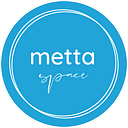The New Kid in Town: Reporting Workplace Misconduct and Gen Z
What happens when the most outspoken generation doesn’t feel like talking?
When one thinks of Gen Z, a picture gets painted of a racially and ethnically diverse group of men, women, non-binary and third-gender humans who are considered the most connected and progressive generation yet. In particular, Gen Z strongly desires change and an understanding of the need for inclusion and equal opportunities. All of this considered, a recent poll found that, surprisingly, Gen Z was less likely to report misconduct. According to the survey conducted by Ethisphere, 38.9% of Gen Z respondents said they did not report misconduct when they observed it, despite their professed willingness to report it. That compares with 31.8% of millennials who did not report observed misconduct and 27.6% of Gen Xers and baby boomers.
The US Equal Employment Opportunity Commission developed a chart highlighting some cases where risk factors may be increased for workplace harassment. This includes:
- Workplaces where some employees do not conform to workplace norms
- Cultural and language differences in the workplace
- Young workforces
Sound familiar? These risk factors are increased for harassment because
- ‘abusive remarks or humor may promote workplace norms that devalue certain types of individuals’
- ‘different cultural backgrounds may make employees less aware of laws and workplace norms.’
- ‘young employees may lack the self-confidence to resist unwelcome overtures or challenge conduct that makes them uncomfortable.’
When it comes to identifying workplace misconduct, many still struggle to place a finger on what is acceptable or not. Previous Metta Space surveys have highlighted how some workers have said “they haven’t experienced sexual harassment in the workplace” and proceeded to identify situations they have been put in that, by all legal definitions, would be misconduct. There has been a slight regression between generations as 28% of Gen Z employees were unsure if the misconduct they reported was severe enough to report, an increase of 3% compared to Millennials. There are many factors to consider, such as Gen Z has been in the workforce for less time than Millennials, so there is a learning curve. However, no one should have to experience a learning curve of harassment.
Actually, Gen Z wants to report misconduct! However, compared to older generations, such as Gen X and Boomers, they are less aware of how they will be protected against retaliation. Gen Z has also earned the right to be cynical, considering all that has happened in their lifetime, so their biggest reason not to report is they don’t believe that corrective action would be taken. Over 56% of Gen Z workers believed that. The younger the employee, the more they doubt the system will protect them.
How can we build the support system that Gen Z so clearly needs? One solution can be through compliance portals instead of hotlines, as Gen Z is considered the generation of digital natives who have little or no memory of the world as it existed before smartphones. This way, Gen Z employees can inform themselves about company policies and report misconduct without dialing a number. HR managers can also provide orientation to all new employees with an emphasis on their desire to hear about all cases of misconduct. Finally, HR managers can train supervisors on how to be the support system and intentionally create a culture of respect through leadership.
While Gen Z may be new to the workforce, they are rapidly growing and standing up for what they believe in. By utilizing systems with strong reporting and resolution processes, companies can take the lead in creating corporate cultures of accountability that even Gen Z can get behind.

